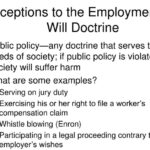In today’s complex world of insurance claims, it’s not uncommon to find yourself in a frustrating situation where your insurance company seems to be dragging its feet. This comprehensive guide will walk you through the ins and outs of dealing with an insurance company that’s stalling on your claim.
Whether you’ve been in a car accident or suffered another type of loss, understanding how to navigate these delays can make a significant difference in the outcome of your claim.
Understanding Insurance Company Stalling Tactics
When you file a claim with your insurance company, you expect a prompt and fair resolution. However, some insurers employ various tactics to delay the claim process, often in an attempt to minimize their payouts or discourage claimants from pursuing their full compensation. Recognizing these tactics is the first step in effectively countering them.
Recognizing the Signs of a Stalling Insurance Company
Stalling tactics can take many forms, but some common signs include repeated requests for information you’ve already provided, long periods of silence from your insurance adjuster, or constant transferring of your case between different representatives. If you find yourself constantly chasing updates or feeling like you’re getting the runaround, it’s possible your insurance company is intentionally slowing down your claim.
Why Do Insurance Companies Stall?
Insurance companies may stall for various reasons, but it often boils down to financial motivations. By delaying claims, they can hold onto funds longer, potentially earning interest or hoping that claimants will give up or settle for less out of frustration. In some cases, delays may be due to genuine complexities in the claim, but persistent, unexplained delays are often a red flag.
The Impact of Stalling on Claimants
The effects of claim delays can be severe for claimants. You might find yourself struggling to pay medical bills, unable to repair damaged property, or facing financial hardship due to lost wages. The stress and uncertainty can also take a toll on your mental health. Understanding these impacts can help you stay motivated to push for a fair resolution.
Typical Insurance Claim Time Limits
While claim processing times can vary, there are generally accepted industry standards and legal requirements that insurance companies should adhere to. Knowing these timelines can help you determine if your claim is being unnecessarily delayed.
Industry-Standard Claim Processing Timelines
Most insurance companies aim to settle straightforward claims within 30 to 45 days. However, more complex cases, such as those involving severe injuries or disputed liability, may take longer. Here’s a general timeline for different types of claims:
| Claim Type | Average Processing Time |
| Auto Property Damage | 2-4 weeks |
| Home Property Damage | 2-6 weeks |
| Personal Injury | 4-12 weeks |
| Complex Liability | 3-6 months |
Legal Time Limits for Insurance Companies

Many states have laws that set specific deadlines for insurance companies to acknowledge, investigate, and decide on claims. For example, in California, insurers must acknowledge a claim within 15 days and make a decision within 40 days of receiving proof of claim. Check your state’s insurance regulations to understand the specific timelines applicable to your situation.
Exceptions to Standard Claim Processing Times
There are situations where longer processing times may be justified. These could include cases involving multiple parties, extensive property damage, or severe injuries requiring ongoing medical treatment. However, your insurance company should communicate clearly about any delays and provide valid reasons for extended processing times.
Common Insurance Company Delay Tactics
Understanding the specific strategies insurance companies use to stall claims can help you identify and counter these tactics more effectively. Here are some common delay tactics to watch out for:
Excessive Documentation Requests
One frequent tactic is to repeatedly request additional documentation, even when you’ve already provided comprehensive information. While thorough documentation is necessary, excessive or repetitive requests can be a sign of intentional delay.
Poor Communication Practices
Some insurance companies may use poor communication as a delay tactic. This could involve not returning your calls, providing vague or inconsistent information, or frequently changing the insurance adjuster assigned to your case.
Disputing Medical Treatment or Damages
Insurance companies may also stall by questioning the necessity of your medical treatment or disputing the extent of your damages. They might request independent medical examinations or property assessments, which can significantly extend the claim process.
What You Can Do If the Insurance Company Is Stalling
If you suspect your insurance company is deliberately delaying your claim, there are several steps you can take to protect your interests and move the process forward.
Document Everything
Keep detailed records of all interactions with your insurance company. This includes dates and times of phone calls, names of representatives you spoke with, and summaries of conversations. Save all correspondence, including emails and letters. This documentation can be crucial if you need to escalate your complaint or take legal action.
Understand Your Policy
Thoroughly review your insurance policy to understand your coverage and the claim process. Pay attention to any time limits for filing claims or providing information. Knowing your rights and obligations under the policy can help you push back against unreasonable delays.
Be Persistent and Professional
Maintain regular, professional communication with your insurance company. Follow up consistently on the status of your claim, but avoid becoming confrontational. Document each interaction and send written follow-ups to confirm what was discussed or agreed upon.
File a Complaint with State Regulators
If your insurance company continues to stall without justification, consider filing a complaint with your state’s insurance commissioner. This can often prompt the insurer to act more quickly and may lead to an investigation of their practices.
Consider Legal Action
If all else fails, you may need to consider legal action. Consult with a personal injury lawyer or car accident attorney who specializes in insurance bad faith cases. They can advise you on your options and help you pursue your claim more aggressively.
Read This Blog: Aldridge Tail Insurance: A Comprehensive Guide for US Professionals
How a Personal Injury Lawyer Can Help
When dealing with a stalling insurance company, the expertise of a personal injury lawyer can be invaluable. These legal professionals have experience navigating complex insurance claims and can often expedite the process.
Negotiating with Insurance Companies
Personal injury lawyers are skilled negotiators who understand the tactics used by insurance companies. They can communicate effectively with adjusters, pushing back against delay tactics and advocating for fair and prompt settlement negotiation.
Gathering and Presenting Evidence
Lawyers can help ensure that all necessary accident evidence and injury documentation is collected and presented effectively. This can include obtaining medical records, accident reports, and expert testimonies to support your claim.
Understanding Complex Policy Language
Insurance policies can be complex and filled with legal jargon. A lawyer can interpret these documents for you, ensuring you understand your rights and that the insurance company is honoring the terms of your policy.
Litigation Support
If your claim cannot be resolved through negotiation, a personal injury lawyer can prepare and file a lawsuit on your behalf. They will handle all aspects of the legal process, from discovery to trial if necessary.
Preventing Insurance Company Stalling
While you can’t control how an insurance company behaves, there are steps you can take to minimize the chances of facing delays in future claims.
Also Read: Les Gold Net Worth, Age, Child, wife, Early Life, Career
Choose the Right Insurance Company
Research insurance providers before purchasing a policy. Look for companies with good reputations for claim handling and customer service. Check reviews and ratings from independent sources to get a clear picture of an insurer’s performance.
Understand Your Coverage Before Filing a Claim
Take the time to review and understand your policy before you need to file a claim. This knowledge can help you navigate the claim process more effectively and challenge any unreasonable delays or denials.
Prompt Reporting and Documentation
Report incidents promptly and provide thorough documentation from the start. This includes gathering accident evidence, obtaining medical bills, and collecting statements from accident witnesses. The more complete your initial claim submission, the less room there is for unnecessary delays.
The Role of No-Fee-Unless-We-Win Lawyers
Many personal injury lawyers work on a contingency fee basis, meaning they only get paid if you win your case. This arrangement can be particularly beneficial when dealing with a stalling insurance company.
Benefits of Contingency Fee Arrangements
Contingency fees allow you to access legal representation without upfront costs. This can be especially helpful if you’re facing financial strain due to your accident or injury. It also aligns your lawyer’s interests with yours, as they’re motivated to secure the best possible outcome for your case.
How Contingency Fees Work in Insurance Claims
If your case is successful, your lawyer will receive a percentage of your settlement or court award. This percentage is agreed upon in advance and typically ranges from 25% to 40%. While this may seem high, studies have shown that claimants with legal representation often receive higher settlements, even after accounting for legal fees.
FAQ
How long can an insurance company legally take to settle a claim?
The time an insurance company can legally take to settle a claim varies by state and the type of claim. Generally, insurers are required to act in good faith insurance practices and settle claims within a reasonable timeframe. Check your state’s insurance regulations for specific timelines.
Can I switch insurance companies if my current one is stalling?
While you can switch insurance companies at any time, it’s generally not advisable to do so in the middle of an active claim. Your current insurer is still obligated to handle claims that occurred while you were under their coverage.
What if the insurance company denies my claim after stalling?
If your claim is denied after a long delay, you have the right to appeal the decision. Request a written explanation for the denial and consider seeking legal consultation to review your options. Remember, you may still be within the statute of limitations to file a lawsuit if necessary.
Conclusion
Dealing with a stalling insurance company can be frustrating, but understanding their tactics and knowing your rights can help you navigate the process more effectively. Don’t hesitate to seek professional help if you feel your claim is being unfairly delayed. With persistence and the right approach, you can overcome these obstacles and obtain the compensation you deserve.







